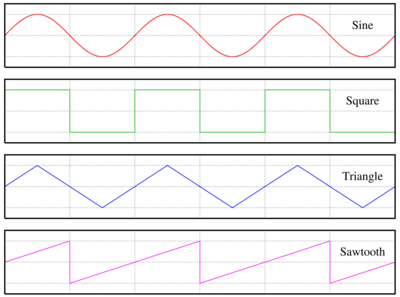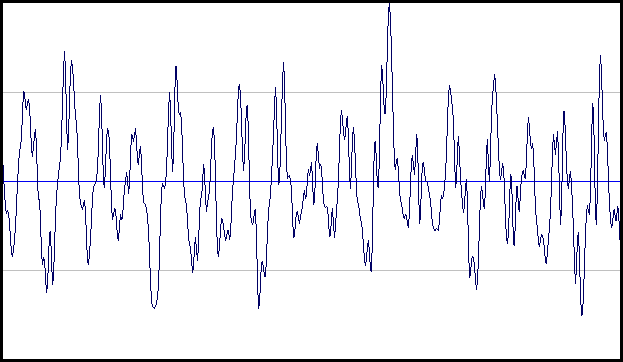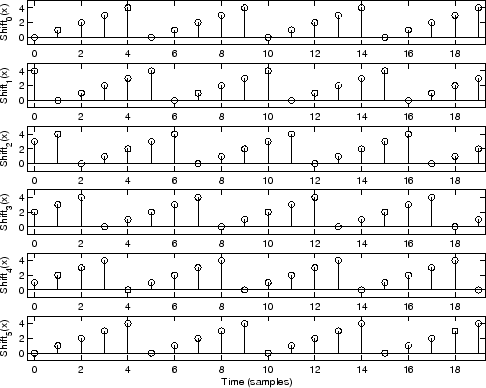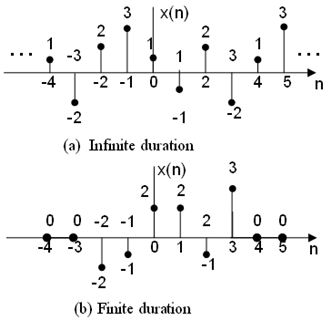m (→Non Periodic Signal) |
|||
| Line 1: | Line 1: | ||
| + | =Periodic versus non-periodic functions ([[Homework_1_ECE301Fall2008mboutin|hw1]], [[ECE301]])= | ||
| + | <span style="color:green"> Read the instructor's comments [[hw1periodicECE301f08profcomments|here]]. </span> | ||
| + | |||
==Continuous Time== | ==Continuous Time== | ||
===Periodic signals=== | ===Periodic signals=== | ||
Latest revision as of 06:20, 14 April 2010
Contents
Periodic versus non-periodic functions (hw1, ECE301)
Read the instructor's comments here.
Continuous Time
Periodic signals
A periodic signal is one that for a given real number "a": $ x(t) = x(t+a) $

http://en.wikibooks.org/wiki/Signals_and_Systems/Periodic_Signals
Non Periodic signals
Non-periodic signals are those which no value of "a" satisfies the following equation. $ x(t) = x(t+a) $

http://ac3filter.net/files/docs/ac3filter_1_30b/loudness_eng.html
Discrete Time
Periodic Signal
A periodic discrete time signal is one that satisfies :
$ x[n] = x[n + A] $
For a given integer value 'A'

http://www.dsprelated.com/dspbooks/mdft/Shift_Operator.html
Non Periodic Signal
A non periodic signal is one that cannot satisfy:
$ x[n] = x[n + A] $
For any integer value 'A'


